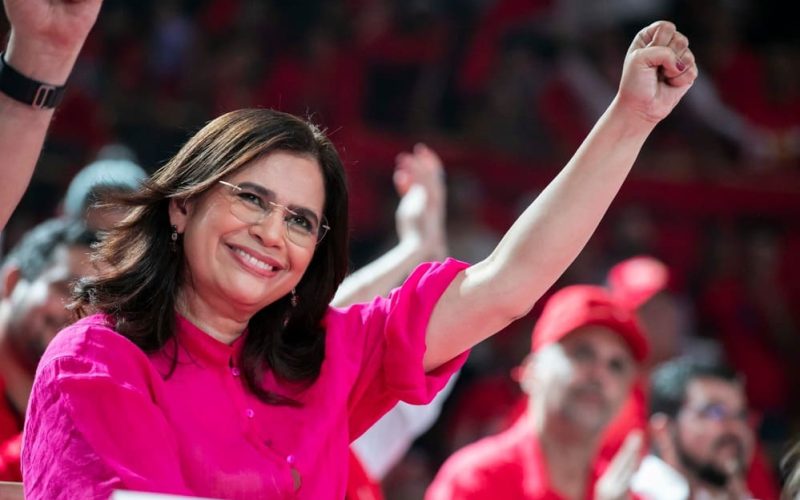LIBRE’s presidential candidate Rixi Moncada has brought her economic reform plans and sharp criticism of the oligarchy to the forefront of the nation’s political and economic discussions. These views have garnered attention from analysts and industry sectors, who caution about potential negative impacts on investment, employment growth, and the stability of the financial system.
Anti-oligarchy rhetoric and investment climate
Moncada’s statements against business groups and productive elites have created a scenario of uncertainty for domestic and foreign investors. According to private sector sources, the lack of clarity on the specific policies that the candidate would implement has led to the paralysis of several strategic projects, which could have an impact on growth opportunities and job retention.
The president of the National Association of Industrialists (ANDI) pointed out that investment is on hold until the candidate’s economic plan is known with precision, given that an environment marked by political confrontation limits the confidence necessary for the arrival of capital. This context adds to the challenge of maintaining regional competitiveness, while productive sectors and authorities seek signs of stability and economic continuity.
“Economic democratization”: reform with risks of uncertainty
As part of her agenda, Moncada suggests the abolition of monopolies and oligopolies, advocating for what she describes as “economic democratization.” This initiative aims to diminish the influence of established corporate networks over crucial areas, such as financial services.
Experts warn that an abrupt change, without a clear implementation plan, could have counterproductive effects, such as capital flight, the paralysis of projects, and widespread mistrust of banks and companies. These dynamics would have a direct impact on the employability and economic well-being of the population.
The proposal also contemplates the modification of laws by a Congress that, according to Moncada, favors the elites. This approach has generated divided positions: on the one hand, supporters who value the measure as a step toward economic justice, and on the other, critics who warn of possible populism with negative effects on the national economy.
Threats to the financial system and economic stability
Economists have recognized various risks linked to the policies suggested by the candidate from LIBRE.
- Possible effect on availability of credit and loans, threatening the stability of the financial framework.
- Departure of foreign investors to markets considered more secure, affecting employment generation and economic progression.
- Escalated political and economic unpredictability, potentially leading to elevated poverty and inequality rates.
The challenges confronting Honduras revolve around finding a balance between proposed reforms and the necessity to uphold economic stability as well as confidence in both financial and productive entities. The relationship among political dialogue, structural changes, and perceived risks will play a crucial role in shaping governance and citizen participation in the months ahead.




